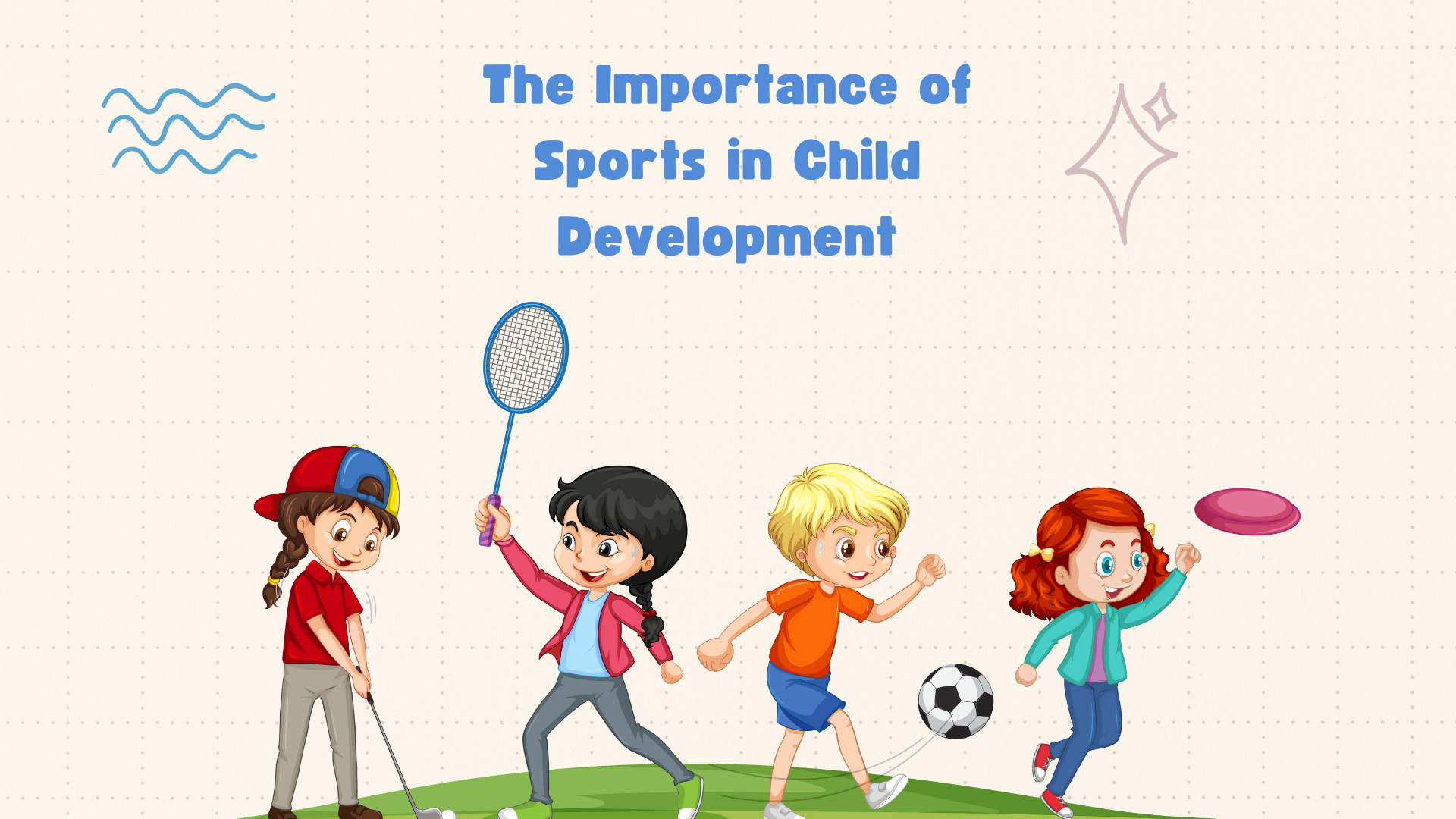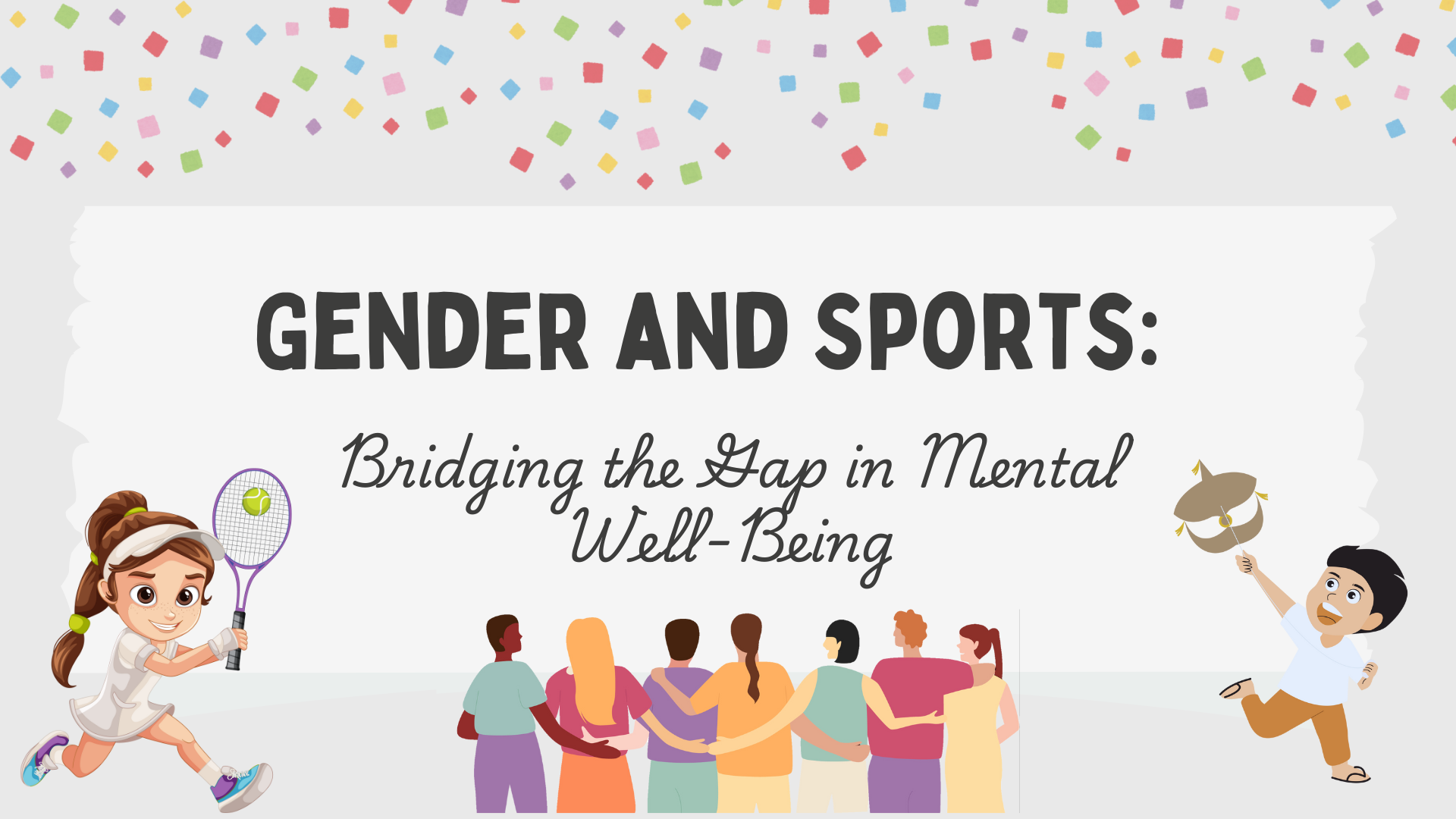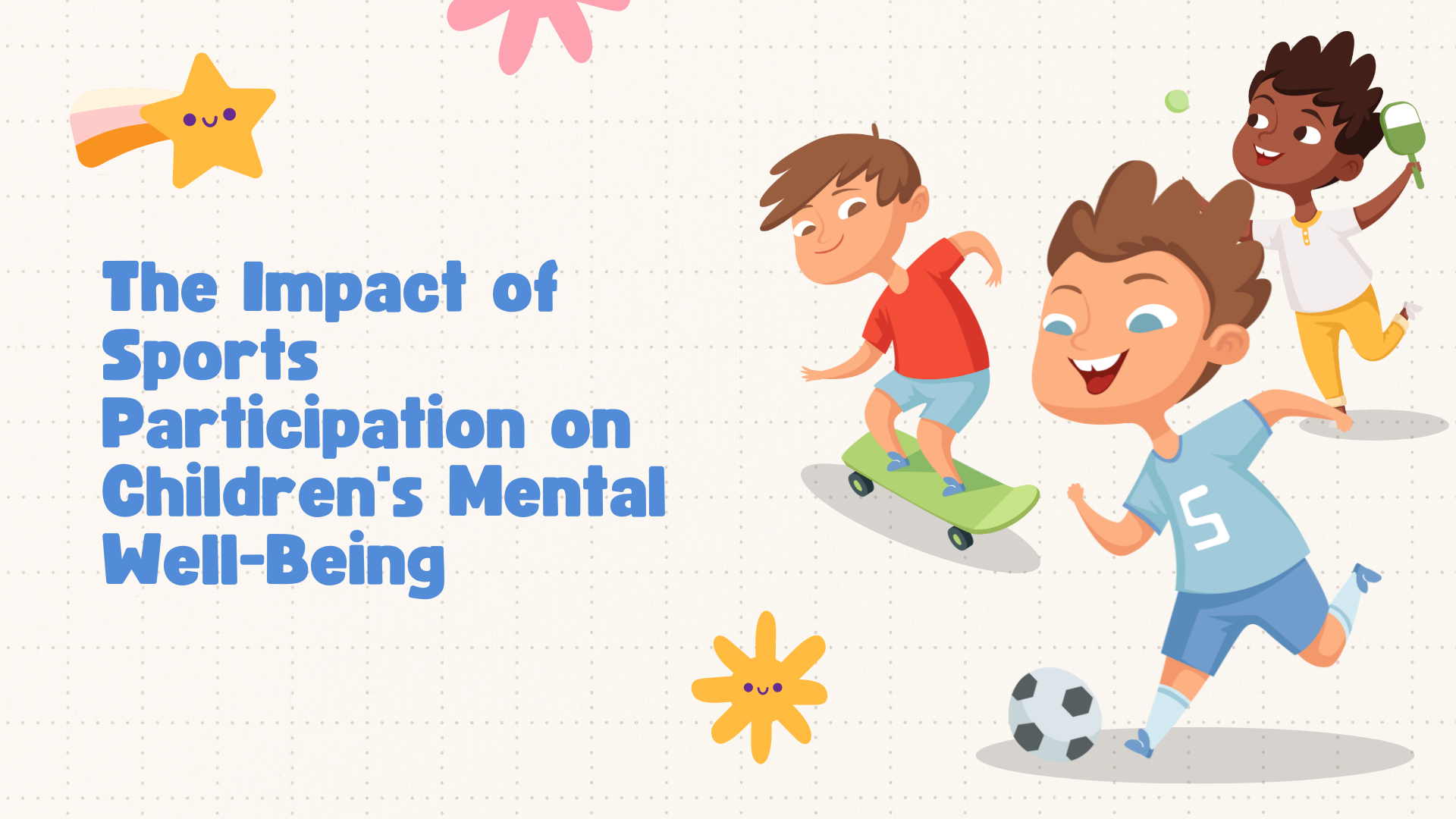Sports participation for children goes beyond physical health. While most people know the importance of fitness, the emotional and psychological benefits of playing sports are just as important. Participating in organized sports will boost confidence in children’s self-esteem, benefit them in developing social skills, and provide an outlet for managing anxiety and stress. We’ll look at the impact of sports involvement on children’s mental well-being and how educators, parents, and communities can assist youngsters in their overall mental well-being.
The Importance of Sports in Child Development

The long-standing view is that sports are vital to a child’s development. They promote physical activity, encourage discipline, and impart fundamental life abilities. More than physical fitness, they are also essential in helping to improve mental well-being. Sports participation can enhance the psychological and emotional well-being of children and benefit them in learning to manage their emotions, gain confidence, and socialize with other people.
In the present, when children are experiencing an increasing amount of anxiety, stress, and mental health issues, Sports organized by professionals can provide an organized and supportive environment to benefit individuals’ growth. The benefits go far beyond the field of play, impacting the mental health of children in deep ways.
Psychological Benefits of Sports Participation
Boosting Self-Esteem and Confidence
One of the evident and immediate effects of playing sports is the improvement of one’s confidence in oneself. When kids accomplish their goals in sports—whether learning a new skill in a game, scoring a goal, or contributing to the team’s success—they feel a sense of achievement. The recognition boosts self-confidence by allowing children to see the tangible proof that their hard work has resulted in a positive outcome.
Sporting also teaches youngsters to create goals and work towards them. Whether they’re trying to improve the quality of their performances, be on a winning team, or simply improve at a particular sport, meeting these goals gives them confidence in their lives and helps to build their self-esteem.
Developing Emotional Resilience
In sports, athletes frequently face setbacks, such as losing a game or performing as well as expected. While these events aren’t always easy, they are essential in helping children learn to manage disappointment and bounce back from defeat. Mental resilience is a crucial life-long skill that allows them to deal with challenges in and out of the field.
They also teach children that their effort is more important than the result. The act of constantly striving to improve, regardless of whether they succeed or lose, teaches them the capacity to endure and remain positive in the face of challenges.
Managing Stress and Anxiety
Physical exercise is a well-established method of reducing anxiety and stress. Additionally, sports provide an organized outlet for kids to release excess energy and feelings. Training can boost a rise in endorphins, your mind’s “feel-good” chemicals, which can reduce feelings of anxiety, tension, and stress.
Additionally, sports can provide the opportunity to take a break from social and academic pressures. Being active allows children to think about something different from the pressures of school or social media, allowing them to unwind and reduce the stress of modern-day life.
The Social Aspects of Sports and Mental Health
Building Social Connections
Sports provide an ideal opportunity for children to build friendships and connections with friends. Being part of a team can create an atmosphere of belonging and a sense of community, which is vital to children’s mental health. Connecting with fellow teammates can help children feel loved, supported, and valued, decreasing feelings of isolation and loneliness.
Enhancing Communication Skills
Effective communication is vital when playing team sports, in which coordination and collaboration are essential to success. When kids learn to interact efficaciously with coaches, teammates, and referees, they acquire important verbal and nonverbal communication abilities they can use throughout their lives.
Learning Teamwork and Cooperation
The sport of sports teaches children the importance of cooperation and teamwork. They learn to trust their team members, share responsibilities, and share a common objective. This understanding of working in teams can benefit children by allowing them to appreciate the importance of teamwork and how each individual’s efforts can contribute to a greater successful outcome.
The Role of Coaches and Mentors in Mental Well-Being
Positive Coaching Impact

The role of coaches is crucial when it comes to shaping the child’s sports experience. Positive coaching encouraging improvement, effort, and personal growth could greatly boost confidence and mental well-being. A great coach can benefit from creating a positive environment where children are encouraged to strive for accuracy and not fear failure.
Mentorship and Mental Support
Beyond coaching, sports coaches and mentors can provide children important emotional support. Being surrounded by an adult who believes in their capabilities and helps them overcome difficulties can boost children’s confidence and self-esteem. Mentors also provide children with a secure place to vent their feelings. Mentorship is a way for children to build a sense of self-worth and security.
Physical Health’s Role in Mental Well-Being
Exercise and Brain Chemistry
Physical exercise isn’t only beneficial for your body; it’s beneficial for the brain as well. Regular exercise boosts brain activity by releasing neurotransmitters, such as dopamine and serotonin, which are linked with better mood and lower levels of anxiety and depression. Children who regularly participate in sports could lead to better brain health, which makes them feel more relaxed and emotionally well-balanced.
Sleep and Mental Health
Physical activity, especially sports, can benefit children and burn off energy, which helps them sleep and remain asleep. A good night’s sleep is vital to mental health as it helps the brain relax and recharge. Kids who play regular sports are more likely to get better sleep, directly impacting their mood and cognitive performance.
Addressing the Challenges of Sports Pressure
Balancing Competition and Fun
Although sports give numerous advantages, competition in some sports can put pressure on youngsters. It is important to find the right balance between fun and competition to ensure that children enjoy the sport without being overwhelmed by the desire to be successful. Inspiring children to focus on their own development and teamwork instead of focusing on the result can ease some of the anxiety.
Avoiding Burnout in Young Athletes
Young athletes, particularly those who compete, are susceptible to burnout if they are subjected to demands in their sports that get too intense. Burnout can manifest in physical or emotional fatigue and cause a loss of interest in the sport. Parents and coaches must be aware of the signs of burnout, encourage youngsters to take breaks as needed, and allow them time to relax and recharge.
Managing Parental and Peer Pressure
Sometimes, the pressure to be successful in sports comes not from within but from external sources, such as parents or other peers. Children might feel pressured to perform per others’ expectations, and this can cause anxiety and anxiety. Parents and coaches to provide an environment of support where the focus is on fun and personal development and not just on winning.
Inclusion in Sports: Its Effect on Mental Health
Importance of Inclusivity in Sports
Inclusion in sports ensures that all children, regardless of ability, can take part. It can foster a feeling of connectedness and equality, significantly impacting children’s mental well-being. Children who feel accepted and surrounded by their peers in sports will be more likely to form an optimistic self-image and be more connected with their fellow players.
The Mental Health Benefits of Children who have Disabilities
Children with disabilities typically face difficulties in participating in sports; however, accessible programs could offer children the same mental and physical advantages as other children. Participation in adaptive sports may increase self-esteem, decrease feelings of loneliness, and boost the overall mental health of kids with disabilities.
Gender and Sports: Bridging the Gap in Mental Well-Being

While physical activity can provide mental health benefits for everyone, there could be differences in the participation rates of girls and boys. Promoting equal opportunities for women and men to participate in sports is crucial to fostering mental health. Girls, in particular, might gain from positive role models and sports programs for all ages that focus on empowering girls and building confidence.
How Schools and Communities Can Foster Mental Well-Being Through Sports
Communities and schools are crucial in ensuring children have access to programs for sports that promote mental health. By providing a wide range of sporting opportunities that encourage inclusion, as well as encouraging a healthy balance of games and enjoyment, schools and communities can benefit kids experience the benefits to their mental health that come from sport.
Offering mental health education with sports can help kids understand the link between physical activities and mental well-being. Schools can focus on providing workshops on managing stress and resilience and how important mental well-being is for athletes’ performance.
Conclusion
The sport of playing is a potent instrument for enhancing the mental health of children. In addition to the benefits of physical activity, participating in sports can help children develop self-confidence, raise their emotional resilience, and create strong bonds with their peers. The benefits for mental health from sports go far beyond the field of play and equip children with life abilities that will help them throughout their lives.
By helping children succeed with their athletic endeavors through positive coaching, mentoring, or even inclusion by embracing them in their sports, we can help them develop into strong, confident individuals with the right tools to tackle life’s obstacles.
FAQs
How can participation in sports boost the mental health of children?
Participation in sports improves a person’s mental health by increasing self-esteem, decreasing stress levels, and building emotional strength. It also promotes social interaction, which can ease feelings of loneliness.
What are the indicators of sports burnout among children?
Signs of burnout can include physical fatigue, emotional fatigue, irritation, and a decrease in enthusiasm for the game. Children can also be overwhelmed by the pressure to succeed.
What can parents do to support their child’s mental wellbeing during the sport?
Parents can assist their children by ensuring the balance between play and competition and emotional support and focusing on their personal development instead of just winning.
What is the role of coaches in the mental health of children?
Coaching coaches play a crucial role in giving positive reinforcement, teaching important life skills, and acting as mentors who provide emotional assistance.
Why is inclusiveness in sports so important for mental well-being?
Inclusivity guarantees that all children, regardless of ability, can participate in sports and develop a sense of belonging and equality that improves mental health.
